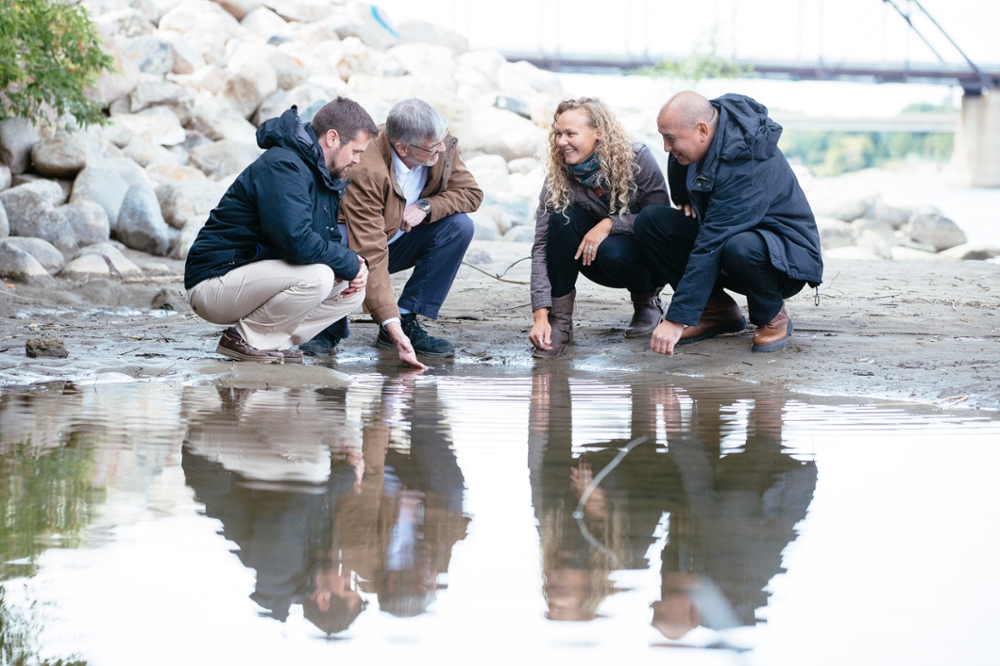
Water research and the U of S: A natural fit
This article originally appeared in the Fall 2014 issue of the U of S alumni magazine, the Green and White
By Howard WheaterThis article originally appeared in the Fall 2014 issue of the U of S alumni magazine, the Green & White
When I first made the decision to join the University of Saskatchewan as the Canada Excellence Research Chair in Water Security back in 2010 and leave my post at Imperial College London, I was often asked "Why now?", " Why Saskatchewan?", and "What opportunities will this bring?"
The answers were simple. The timing? Apt. The location? Prime. And, the opportunities? Countless.
The timing
Water security—the sustainable use and protection of water resources and protection against water-related hazards such as flooding and drought—is one of the most pressing issues of our time.
Canada, and Saskatchewan, are not immune from this global issue. In recent history, floods in Alberta, Saskatchewan and Manitoba have caused loss of life and large economic damage. Drought also remains a major risk, and there are challenges to manage water quality in our rivers and lakes.
Saskatchewan’s growing population and economy need solid research to inform decisions now. We need to be able to better understand, predict and plan for an uncertain future, manage the risks of flood and drought, support economic development and protect our environment, all in a warming world.
The location
At the U of S, excellence in water research runs deep. Our commitment to establishing and developing strong research and training programs in hydrology and toxicology—and recruiting top experts—stretches back over four decades. We have over 120 researchers specializing in water under the umbrella of the Global Institute for Water Security. When combined with the expertise found in Environment Canada’s National Hydrology Research Centre, where our institute is co-located, the U of S has among the world’s highest concentration of water experts.
Saskatchewan is a prime location for this research concentration. The province has one of the most extreme and variable climates in the world, and with its globally-important agriculture and natural resource industries, is well situated for research into the impacts of climate and environmental change on water resources. A major focus of our institute is the Saskatchewan River Basin—a watershed half the size of France that stretches from the Rocky Mountains in Alberta, north to the boreal forest, and through the Prairies into Manitoba. Strong collaboration with the province and its Water Security Agency ensures we focus on issues of practical importance. Many water challenges experienced around the world play out within the basin, making research conducted here globally applicable.
The opportunities
The U of S has become a hub for international water expertise. We have established strong research themes focusing on climate change and water security, water quality issues and land management, socio-hydrology, and the sustainable development of natural resources and their impact on the water environment. The knowledge we have accumulated has allowed us to expand our scope to include water and health, groundwater and hydrogeology, and water and wastewater treatment technologies. We have connected our programs to prominent international networks to strengthen our work and collaboration and link our data and findings with those discovered globally.
Water is life. The U of S is committed to providing policy makers with the best information possible to lead decisions that affect our watersheds. This will help ensure clean water flows through our lakes, rivers and streams, that growth and economic development are managed sustainably and our communities are protected from the risks of flood and drought. As we continue our focus on research that helps the world manage, use and safeguard water resources, I am excited by the future prospects and can’t help but be pleased with my decision to make Saskatchewan my new home.
